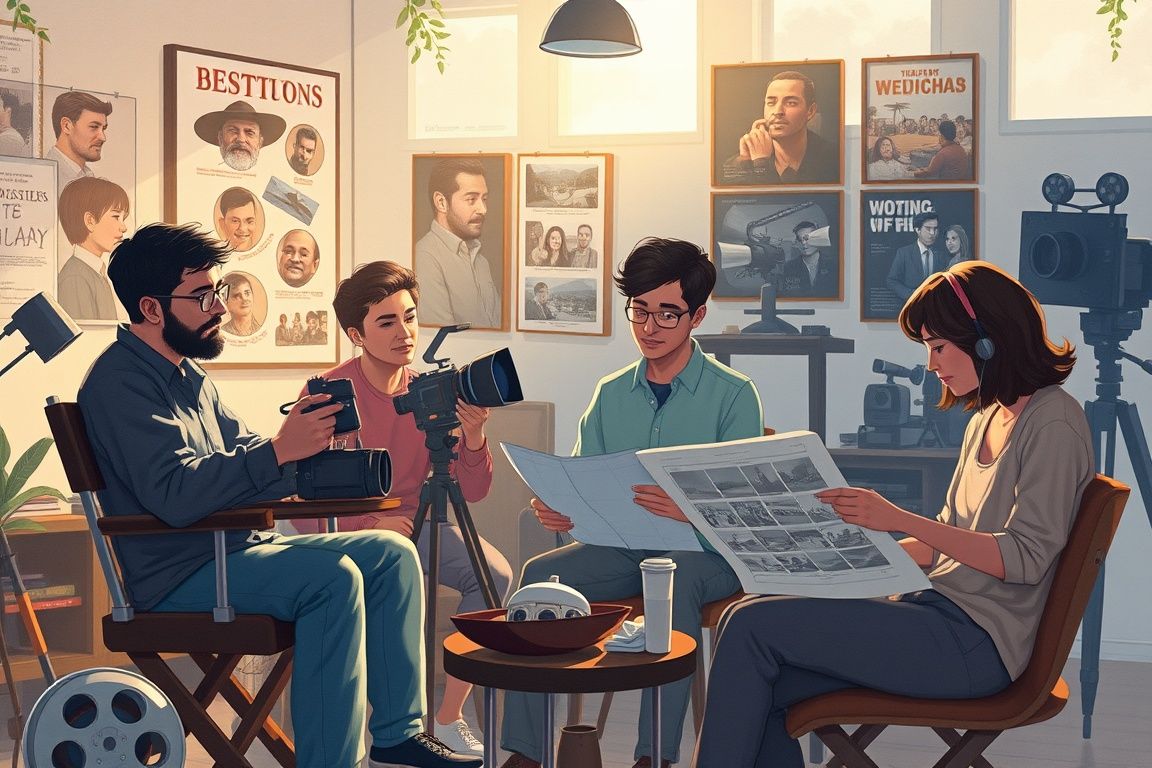Analyzing Auteur Directors and Their Signature Styles

This course highlights the concept of the auteur in filmmaking. Participants will study directors like Alfred Hitchcock, Stanley Kubrick, and Quentin Tarantino, analyzing the recurring themes, visual techniques, and storytelling approaches that define their work.
Why It’s Worth It
Deepen your understanding of auteur theory and its significance in film.
Gain critical analysis skills by exploring signature styles of renowned directors.
Enhance your appreciation of cinematic techniques through detailed examinations of influential filmmakers.
Your Learning Roadmap
Foundations of Auteur Theory
This module provides an overview of the historical background and evolving definitions of auteur theory. Students will explore how directors imprint their unique vision on films and the elements that constitute a signature directorial style. Practical frameworks from classic texts like 'Film Art: An Introduction' will be utilized to ground these ideas. Overview of Auteur Theory Evolution of Filmmaking Recognizing Signature Styles
Alfred Hitchcock's Signature Techniques
This module dives into Alfred Hitchcock's work, revealing the methods behind his suspenseful storytelling. Students will learn how Hitchcock uses visual cues, editing, and thematic duality to craft gripping narratives. The course refers to insights from 'Hitchcock/Truffaut' to provide context. Narrative Suspense and Tension Visual Storytelling Themes of Mystery and Duality
Stanley Kubrick: Visual Precision and Methodical Storytelling
This module explores the refined techniques that define Stanley Kubrick's films. Emphasis is placed on his precision in cinematography, deliberate narrative complexity, and symbolic use of imagery. Drawing upon insights from texts like 'Kubrick,' students will explore how these methods create a unique cinematic language. Cinematographic Innovations Symbolism and Thematic Depth Narrative Structure and Complexity
Quentin Tarantino: Genre-Blending and Nonlinear Storytelling
This module investigates Quentin Tarantino's signature methods through his use of nonlinear narratives and rich dialogue. Students will explore how Tarantino blends genres, incorporates pop culture references, and uses stylized violence to create memorable films. Key concepts will be analyzed using methodologies from film studies texts. Nonlinear Storytelling Dialogue and Pop Culture References Violence as Aesthetic
Comparative Analysis and Modern Auteur Practices
In this final module, students compare recurring themes, stylistic elements, and narrative techniques across iconic directors. The focus will be on drawing connections between classical auteur theories and modern filmmaking practices. Participants will use critical analysis frameworks to assess how a director’s personal vision influences cinematic trends. Recalling Themes and Styles Influence on Contemporary Cinema Critical Analysis Frameworks
What Users Are Saying
All You Need to Know
Enroll Now
Interactive chat sessions for real-time learning.
Flexible pacing allows you to learn at your own speed.
In-depth analysis of iconic directors and their techniques.
Access to critical frameworks for film analysis.
Engage with practical applications for better learning.
Explore a mix of theoretical and practical content.
